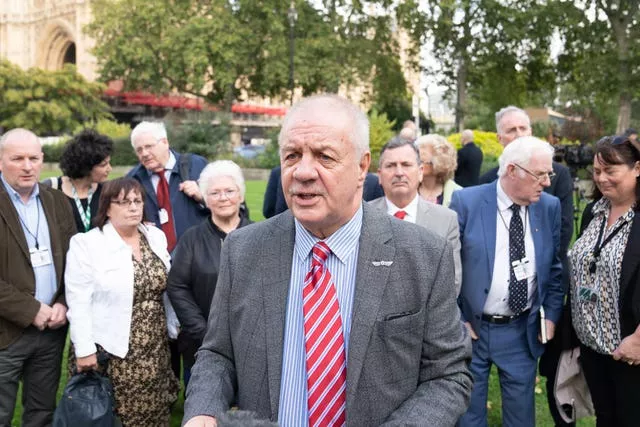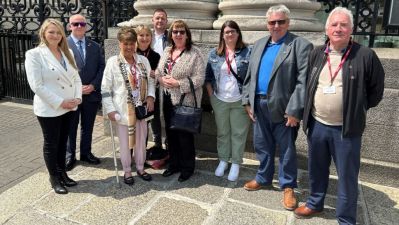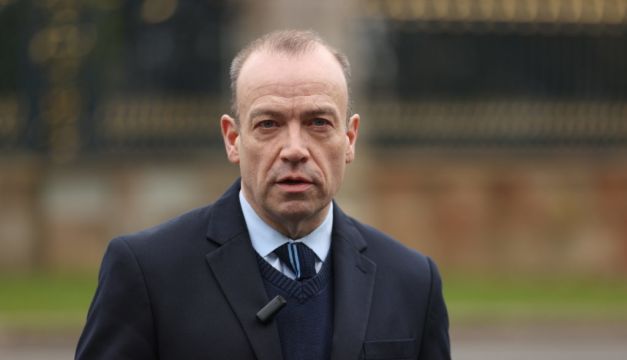Changes made to a controversial bill aimed at tackling the legacy of Northern Ireland’s troubled past have been dismissed as merely “tinkering around the edges”.
The Northern Ireland Troubles (Legacy and Reconciliation) Bill proposes providing immunity for people accused of crimes during the Troubles, as long as they co-operate with a new truth recovery body known as the Independent Commission for Reconciliation and Information Recovery (ICRIR).
It would also halt future civil cases and inquests linked to killings during the conflict.
It is currently at the report stage in the House of Lords.
Amendments announced by Northern Ireland Secretary Chris Heaton-Harris on Thursday include stopping criminal investigations and court processes for legacy cases on May 1st, 2024 to “ensure a smooth transition” to the Independent Commission for Reconciliation and Information Recovery taking on full responsibility for dealing with those cases.
They also include placing the ICRIR under a duty to offer victims and their families the opportunity to submit personal impact statements, placing it under a new duty to secure information around assessing the truth of an applicant for immunity’s account, and the revocation of immunity if an individual is subsequently convicted of terrorism offences.
The fine for non-co-operation with the ICRIR is to increase from £1,000 to £5,000.
The amendments also include confirming that the Commissioner for Investigations must comply with obligations imposed by the Human Rights Act 1998, a duty on the ICRIR to publish a statement explaining how each review was conducted as part of its final report and a duty to produce guidance around determining a request for immunity.
The bill has been opposed by almost all political parties, the Irish Government and victims' groups.
Mr Heaton-Harris described “significant amendments that directly address a number of key concerns raised by interested parties”.
“This includes amendments on the conduct of reviews, compliance with Convention Rights, the independence of the Commission, conditional immunity, and ongoing legal processes,” he said.
“We remain absolutely committed to making legislative progress so that the Independent Commission for Reconciliation and Information Recovery (ICRIR) can be established, and begin delivering better outcomes for those most affected by the Troubles, as swiftly as possible.”
However victims campaigner Raymond McCord said the Government is just “tinkering around the edges”, and the only acceptable move would be scrapping the Bill.

He described the Bill as “disgraceful” and “disgusting”, accusing the Government of “walking on the graves of our murdered family members”, adding victims will consider legal action if the bill goes ahead.
He has urged Northern Ireland political leaders to meet with victims on Friday.
“This is not about politics or sectarianism, its about the Conservatives whitewashing the murders of the Troubles of the people who matter most to us, our innocent murdered family members,” he said.
“We victims are battling and fighting to stop this, we need action from every political individual in the country.
“Talking is done. Stand together with us.”
Amnesty International slammed the amendments as “doing nothing to address the fundamental flaws with the bill”.
Grainne Teggart, Amnesty International UK’s Northern Ireland deputy director, said “no-one is fooled by these changes”.
“The Government is still clearly intent on denying victims their basic rights and pressing ahead with a bill only it wants,” he said.
“The amendments follow the Council of Europe Committee of Ministers issuing a resolution expressing their serious concern about the bill’s compatibility with the Government’s human rights obligations.
“It’s time the Government halted the passage of this profoundly unjust bill through Parliament and instead committed to an agreed way forward to deal with the legacy of the Troubles that protects and prioritises victims.”
Relatives for Justice NIO responded saying the amendments “only makes the situation worse”.
“The rights of victims and survivors will be permanently shut down, especially those engaged in inquests. The Bill incentivises state tactics to delay progress of inquests,” they said.
NIO amendments to the Legacy and Reconciliation #BillOfShame only makes the situation worse. The rights of victims and survivors will be permanently shut down, especially those engaged in inquests. The Bill incentivises state tactics to delay progress of inquests.
— Relatives 4 Justice #NeverGivingUp (@RelsForJustice) June 8, 2023
Sinn Féin MLA Gerry Kelly described the amendments as “fundamentally flawed” and will “slam the door shut” to due process for victims.
He said the proposed new timeframe for concluding inquests of May 2024 will deny many families this opportunity, pointing to the backlog in disclosure by the PSNI and the lack of resources for this work.
“This amendment is particularly cruel as expectations had been raised among families that once inquests had been opened that they would be concluded,” he said.
“Similarly families will be denied legacy and Police Ombudsman investigations which are similarly being closed down by May 1 next year.
“These cases will be instead transferred to a new Commission, the ICRIR, whose powers will be limited to reviews rather than Article 2 investigations as required under human rights legislation.”
He added: “This Bill is being rushed through both Houses to become law in six to seven weeks time before Parliament goes into recess on July 26.
“It is a travesty, a perversion of the legal process and with the objective of ending citizens’ rights to access due legal process.”
Earlier the Council of Europe’s Committee of Ministers in Strasbourg adopted an Interim Resolution which “strongly reiterated” its calls upon the UK to reconsider the conditional immunity scheme in light of concerns expressed around its compatibility with the European Convention on Human Rights.

Tánaiste Micheál Martin welcomed the move.
“It is a matter of regret to my government that the Legacy Bill continues its legislative progress without the support of political parties in Northern Ireland, and without support from families, victims’ groups or civil society,” he said.
“I believe that, by providing for amnesties for crimes amounting to gross human rights violations, the Bill, if enacted, would undermine rather than assist reconciliation.”







